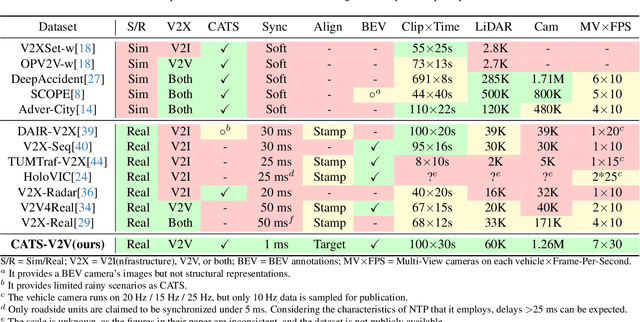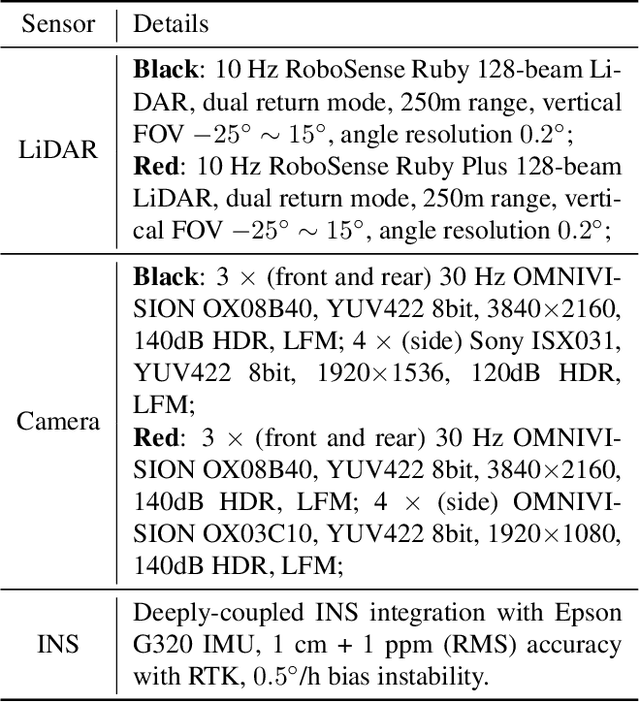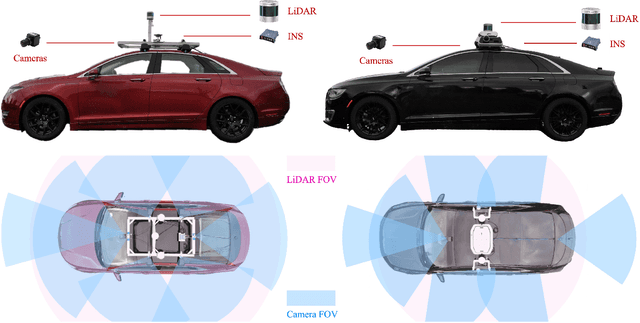Xiaopeng Li
To Search or Not to Search: Aligning the Decision Boundary of Deep Search Agents via Causal Intervention
Feb 03, 2026Abstract:Deep search agents, which autonomously iterate through multi-turn web-based reasoning, represent a promising paradigm for complex information-seeking tasks. However, current agents suffer from critical inefficiency: they conduct excessive searches as they cannot accurately judge when to stop searching and start answering. This stems from outcome-centric training that prioritize final results over the search process itself. We identify the root cause as misaligned decision boundaries, the threshold determining when accumulated information suffices to answer. This causes over-search (redundant searching despite sufficient knowledge) and under-search (premature termination yielding incorrect answers). To address these errors, we propose a comprehensive framework comprising two key components. First, we introduce causal intervention-based diagnosis that identifies boundary errors by comparing factual and counterfactual trajectories at each decision point. Second, we develop Decision Boundary Alignment for Deep Search agents (DAS), which constructs preference datasets from causal feedback and aligns policies via preference optimization. Experiments on public datasets demonstrate that decision boundary errors are pervasive across state-of-the-art agents. Our DAS method effectively calibrates these boundaries, mitigating both over-search and under-search to achieve substantial gains in accuracy and efficiency. Our code and data are publicly available at: https://github.com/Applied-Machine-Learning-Lab/WWW2026_DAS.
Reward-free Alignment for Conflicting Objectives
Feb 02, 2026Abstract:Direct alignment methods are increasingly used to align large language models (LLMs) with human preferences. However, many real-world alignment problems involve multiple conflicting objectives, where naive aggregation of preferences can lead to unstable training and poor trade-offs. In particular, weighted loss methods may fail to identify update directions that simultaneously improve all objectives, and existing multi-objective approaches often rely on explicit reward models, introducing additional complexity and distorting user-specified preferences. The contributions of this paper are two-fold. First, we propose a Reward-free Alignment framework for Conflicted Objectives (RACO) that directly leverages pairwise preference data and resolves gradient conflicts via a novel clipped variant of conflict-averse gradient descent. We provide convergence guarantees to Pareto-critical points that respect user-specified objective weights, and further show that clipping can strictly improve convergence rate in the two-objective setting. Second, we improve our method using some heuristics and conduct experiments to demonstrate the compatibility of the proposed framework for LLM alignment. Both qualitative and quantitative evaluations on multi-objective summarization and safety alignment tasks across multiple LLM families (Qwen 3, Llama 3, Gemma 3) show that our method consistently achieves better Pareto trade-offs compared to existing multi-objective alignment baselines.
Enhancing Conversational Agents via Task-Oriented Adversarial Memory Adaptation
Jan 29, 2026Abstract:Conversational agents struggle to handle long conversations due to context window limitations. Therefore, memory systems are developed to leverage essential historical information. Existing memory systems typically follow a pipeline of offline memory construction and update, and online retrieval. Despite the flexible online phase, the offline phase remains fixed and task-independent. In this phase, memory construction operates under a predefined workflow and fails to emphasize task relevant information. Meanwhile, memory updates are guided by generic metrics rather than task specific supervision. This leads to a misalignment between offline memory preparation and task requirements, which undermines downstream task performance. To this end, we propose an Adversarial Memory Adaptation mechanism (AMA) that aligns memory construction and update with task objectives by simulating task execution. Specifically, first, a challenger agent generates question answer pairs based on the original dialogues. The constructed memory is then used to answer these questions, simulating downstream inference. Subsequently, an evaluator agent assesses the responses and performs error analysis. Finally, an adapter agent analyzes the error cases and performs dual level updates on both the construction strategy and the content. Through this process, the memory system receives task aware supervision signals in advance during the offline phase, enhancing its adaptability to downstream tasks. AMA can be integrated into various existing memory systems, and extensive experiments on long dialogue benchmark LoCoMo demonstrate its effectiveness.
Robustness and Resilience Evaluation of Eco-Driving Strategies at Signalized Intersections
Jan 19, 2026Abstract:Eco-driving strategies have demonstrated substantial potential for improving energy efficiency and reducing emissions, especially at signalized intersections. However, evaluations of eco-driving methods typically rely on simplified simulation or experimental conditions, where certain assumptions are made to manage complexity and experimental control. This study introduces a unified framework to evaluate eco-driving strategies through the lens of two complementary criteria: control robustness and environmental resilience. We define formal indicators that quantify performance degradation caused by internal execution variability and external environmental disturbances, respectively. These indicators are then applied to assess multiple eco-driving controllers through real-world vehicle experiments. The results reveal key tradeoffs between tracking accuracy and adaptability, showing that optimization-based controllers offer more consistent performance across varying disturbance levels, while analytical controllers may perform comparably under nominal conditions but exhibit greater sensitivity to execution and timing variability.
The Llama 4 Herd: Architecture, Training, Evaluation, and Deployment Notes
Jan 15, 2026Abstract:This document consolidates publicly reported technical details about Metas Llama 4 model family. It summarizes (i) released variants (Scout and Maverick) and the broader herd context including the previewed Behemoth teacher model, (ii) architectural characteristics beyond a high-level MoE description covering routed/shared-expert structure, early-fusion multimodality, and long-context design elements reported for Scout (iRoPE and length generalization strategies), (iii) training disclosures spanning pre-training, mid-training for long-context extension, and post-training methodology (lightweight SFT, online RL, and lightweight DPO) as described in release materials, (iv) developer-reported benchmark results for both base and instruction-tuned checkpoints, and (v) practical deployment constraints observed across major serving environments, including provider-specific context limits and quantization packaging. The manuscript also summarizes licensing obligations relevant to redistribution and derivative naming, and reviews publicly described safeguards and evaluation practices. The goal is to provide a compact technical reference for researchers and practitioners who need precise, source-backed facts about Llama 4.
Exploring Recommender System Evaluation: A Multi-Modal User Agent Framework for A/B Testing
Jan 08, 2026Abstract:In recommender systems, online A/B testing is a crucial method for evaluating the performance of different models. However, conducting online A/B testing often presents significant challenges, including substantial economic costs, user experience degradation, and considerable time requirements. With the Large Language Models' powerful capacity, LLM-based agent shows great potential to replace traditional online A/B testing. Nonetheless, current agents fail to simulate the perception process and interaction patterns, due to the lack of real environments and visual perception capability. To address these challenges, we introduce a multi-modal user agent for A/B testing (A/B Agent). Specifically, we construct a recommendation sandbox environment for A/B testing, enabling multimodal and multi-page interactions that align with real user behavior on online platforms. The designed agent leverages multimodal information perception, fine-grained user preferences, and integrates profiles, action memory retrieval, and a fatigue system to simulate complex human decision-making. We validated the potential of the agent as an alternative to traditional A/B testing from three perspectives: model, data, and features. Furthermore, we found that the data generated by A/B Agent can effectively enhance the capabilities of recommendation models. Our code is publicly available at https://github.com/Applied-Machine-Learning-Lab/ABAgent.
JPU: Bridging Jailbreak Defense and Unlearning via On-Policy Path Rectification
Jan 06, 2026Abstract:Despite extensive safety alignment, Large Language Models (LLMs) often fail against jailbreak attacks. While machine unlearning has emerged as a promising defense by erasing specific harmful parameters, current methods remain vulnerable to diverse jailbreaks. We first conduct an empirical study and discover that this failure mechanism is caused by jailbreaks primarily activating non-erased parameters in the intermediate layers. Further, by probing the underlying mechanism through which these circumvented parameters reassemble into the prohibited output, we verify the persistent existence of dynamic $\textbf{jailbreak paths}$ and show that the inability to rectify them constitutes the fundamental gap in existing unlearning defenses. To bridge this gap, we propose $\textbf{J}$ailbreak $\textbf{P}$ath $\textbf{U}$nlearning (JPU), which is the first to rectify dynamic jailbreak paths towards safety anchors by dynamically mining on-policy adversarial samples to expose vulnerabilities and identify jailbreak paths. Extensive experiments demonstrate that JPU significantly enhances jailbreak resistance against dynamic attacks while preserving the model's utility.
Exploration vs Exploitation: Rethinking RLVR through Clipping, Entropy, and Spurious Reward
Dec 21, 2025



Abstract:This paper examines the exploration-exploitation trade-off in reinforcement learning with verifiable rewards (RLVR), a framework for improving the reasoning of Large Language Models (LLMs). Recent studies suggest that RLVR can elicit strong mathematical reasoning in LLMs through two seemingly paradoxical mechanisms: spurious rewards, which suppress exploitation by rewarding outcomes unrelated to the ground truth, and entropy minimization, which suppresses exploration by pushing the model toward more confident and deterministic outputs, highlighting a puzzling dynamic: both discouraging exploitation and discouraging exploration improve reasoning performance, yet the underlying principles that reconcile these effects remain poorly understood. We focus on two fundamental questions: (i) how policy entropy relates to performance, and (ii) whether spurious rewards yield gains, potentially through the interplay of clipping bias and model contamination. Our results show that clipping bias under spurious rewards reduces policy entropy, leading to more confident and deterministic outputs, while entropy minimization alone is insufficient for improvement. We further propose a reward-misalignment model explaining why spurious rewards can enhance performance beyond contaminated settings. Our findings clarify the mechanisms behind spurious-reward benefits and provide principles for more effective RLVR training.
BlossomRec: Block-level Fused Sparse Attention Mechanism for Sequential Recommendations
Dec 15, 2025Abstract:Transformer structures have been widely used in sequential recommender systems (SRS). However, as user interaction histories increase, computational time and memory requirements also grow. This is mainly caused by the standard attention mechanism. Although there exist many methods employing efficient attention and SSM-based models, these approaches struggle to effectively model long sequences and may exhibit unstable performance on short sequences. To address these challenges, we design a sparse attention mechanism, BlossomRec, which models both long-term and short-term user interests through attention computation to achieve stable performance across sequences of varying lengths. Specifically, we categorize user interests in recommendation systems into long-term and short-term interests, and compute them using two distinct sparse attention patterns, with the results combined through a learnable gated output. Theoretically, it significantly reduces the number of interactions participating in attention computation. Extensive experiments on four public datasets demonstrate that BlossomRec, when integrated with state-of-the-art Transformer-based models, achieves comparable or even superior performance while significantly reducing memory usage, providing strong evidence of BlossomRec's efficiency and effectiveness.The code is available at https://github.com/ronineume/BlossomRec.
CATS-V2V: A Real-World Vehicle-to-Vehicle Cooperative Perception Dataset with Complex Adverse Traffic Scenarios
Nov 14, 2025



Abstract:Vehicle-to-Vehicle (V2V) cooperative perception has great potential to enhance autonomous driving performance by overcoming perception limitations in complex adverse traffic scenarios (CATS). Meanwhile, data serves as the fundamental infrastructure for modern autonomous driving AI. However, due to stringent data collection requirements, existing datasets focus primarily on ordinary traffic scenarios, constraining the benefits of cooperative perception. To address this challenge, we introduce CATS-V2V, the first-of-its-kind real-world dataset for V2V cooperative perception under complex adverse traffic scenarios. The dataset was collected by two hardware time-synchronized vehicles, covering 10 weather and lighting conditions across 10 diverse locations. The 100-clip dataset includes 60K frames of 10 Hz LiDAR point clouds and 1.26M multi-view 30 Hz camera images, along with 750K anonymized yet high-precision RTK-fixed GNSS and IMU records. Correspondingly, we provide time-consistent 3D bounding box annotations for objects, as well as static scenes to construct a 4D BEV representation. On this basis, we propose a target-based temporal alignment method, ensuring that all objects are precisely aligned across all sensor modalities. We hope that CATS-V2V, the largest-scale, most supportive, and highest-quality dataset of its kind to date, will benefit the autonomous driving community in related tasks.
 Add to Chrome
Add to Chrome Add to Firefox
Add to Firefox Add to Edge
Add to Edge